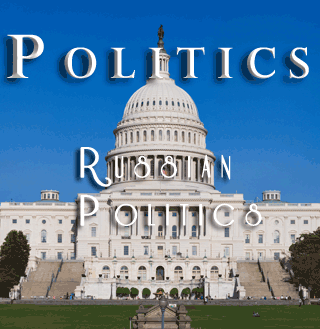Chechnya
I taught Russian and Soviet Studies from 1965 to 2000 at Bucknell, Russian and Soviet history from 1971-1991. In 1969 I participated in a teacher exchange and went to Moscow to study the latest language teaching techniques.
We were housed at the University of Moscow and assigned an elite member of the Communist Youth League as an "assistant", whose primary job was to keep an eye on us.
My roommate was the son of the former head of the Chechen Communist Party, Aslan Alexeevich. We talked frankly, but always outside in the park. Presumably he knew our room was bugged.
When I asked him what he planned to do with his life, he told me that he wanted to return to Chechnya to continue his father's goal of fighting blood feuds. His father was killed in 1944 for refusing to comply with Stalin's order to move all Chechens farther inland, for fear they would welcome the Germans as liberators (as the Ukrainians did).
The strife between Muslim Chechnya and Christian Russia had been going on for over a century, since Russia took over that country. The Russians named their original outpost Grozny "Terrible", the same name in Russian as Ivan the Terrible ("Ivan Grozny" in Russian). That outpost grew into the largest city in Chechnya and today is its capital, still bearing that brutish name.
We talked many long hours about blood feuds in Grozny. He told me that was the number one problem there. A blood feud is one that does not end until someone is dead: revenge by death. I am not sure what happened to Aslan. We exchanged letters for a few years. The last one came from Chechnya but my response to that letter was not answered.
But I don't think he made much headway in the fight against blood feuds, a concept that has played no role in the discussions so far on commercial radio or TV so far as I know.
The Chechens fully expected the US to intervene on their behalf when Russia bombed Grozny in 1994. They made many appeals to us to do so. We did not intervene, though we did interverne on behalf of the Albanians in Kosovo, and the Chechens held that against us.
The concept of blood feud is something passed down from family to family. The names that their sons bear suggest that the Tsarnaev family is fiercely nationalist. Tamerlane was a ruler known for his atrocities in trying to restore the empire of Genghis Khan. Dzhokar was the name of the first president, Dzhokhar Dudaeyev, of the briefly independent Chechnya. (Dudayev's contribution to Chechnya was to make it a haven for the Russian mafia.)
The Boston Marathon bomb may have been an act of blood vengeance against the US for remaining neutral in the First Chechen War despite repeated appeals to us. This left many Chechens, particularly the patriotic ones, bitter and angry with the US. This, of course, is pure speculation, but it is an avenue that I fear is not being explored enough. However, I think there is a high probability that someone related to the Tsarnaevs will seek vengeance against the powers that be.




